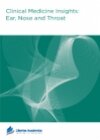


Brenda Anne Wilson, PhD: Associate Professor, Department of Microbiology, School of Molecular & Cellular Biology, Host-Microbe Systems Theme Leader, Institute for Genomic Biology, Co-Director of the Center for Zoonoses Research, University of Illinois at Urbana-Champaign, Urbana, Illinois, USA.
Dr Wilson is an Associate Professor of Microbiology in the School of Molecular and Cellular Biology and Host-Microbe Systems Theme Leader in the Institute for Genomic Biology at the University of Illinois at Urbana-Champaign. She gained her B.A. degree in Biochemistry and German from Barnard College, Columbia University, New York in 1981. She then studied biochemistry for a year as a Diplom student through a DAAD fellowship at the Ludwig-Maximilians Universität in München, Germany. She received her Ph.D. degree in Chemistry from the Johns Hopkins University in Baltimore, Maryland, where she received the Ernest M. Marks Achievement Award and an AAUW doctoral fellowship to study the biosynthesis of β-lactam antibiotics. Dr Wilson then undertook her postdoctoral training in microbiology through an NIH fellowship at Harvard Medical School, where she began her studies on bacterial protein toxins. Her first faculty appointment in 1993 was in the Department of Biochemistry at Wright State University in Dayton, Ohio. Dr Wilson joined the Department of Microbiology at the University of Illinois at Urbana-Champaign as an Associate Professor in 1999, and in 2004 she also became Leader of the Host-Microbe Systems Theme in the Institute for Genomic Biology and Co-Director for the Center for Zoonosis Research. Dr Wilson has published over 60 peer-reviewed manuscripts. She is on the editorial board of two journals and has reviewed manuscripts and books for over 20 scientific journals and publishers on an ad hoc basis. She has served as a standing member of numerous NIH, USDA, NSF and DTRA grant review panels, as well as bioterrorism and emerging infectious disease special emphasis panels, and is currently a member of the NIH Molecular Infectious Disease study section. She has organized and/or convened numerous regional, national and international scientific meetings and workshops on toxins, infectious diseases and microbial pathogenesis.
Dr Wilson’s research involves studying the molecular interactions and biochemical mechanisms by which protein toxins produced by pathogenic bacteria cause their toxic effects on mammalian cells. One NIH-sponsored project involves studying the structure, function and pathogenic mechanisms of the potent dermonecrotic toxins produced by Pasteurella multocida, Bordetella sp., E. coli and Yersinia. The laboratory is interested in understanding how the toxins can be used as potent selective cell biology tools for studying signal transduction pathways and physiological processes within cells. A major goal of another NIH-sponsored translational biomedical research project is to design and develop novel post-exposure anti-toxin therapeutics against botulinum neurotoxins, for which there are currently no effective antidotes, as well as highly sensitive, high-throughput detection assays for distinguishing among botulinum neurotoxins. Finally, as part of the Host-Microbe Systems Theme of the Institute for Genomic Biology, Dr Wilson and her colleagues have begun research to exploit comparative and functional genomic technologies to study the dynamic interactions between the host and its commensal as well as pathogenic microbes, i.e. microbial ecology in the host environment. A central goal will be to elucidate pathogenic mechanisms of vaginal infections such as bacterial vaginosis and the role of normal and abnormal microbiota in disease susceptibility and progression. Studying both human and nonhuman primate vaginal ecosystems through an NSF award will address human biomedical questions by establishing an evolutionary and comparative biology context that considers environments, microbes, and host immune systems.
The Role of the Editor in Chief
The editor in chief is responsible for editorial decision-making on papers submitted to the journal. The editor in chief is also responsible for editorial matters that include but are not limited to journal supplements, the journal's aims and scope, the editorial board and volunteer peer reviewer pool, editorial assessment of video abstracts, assignment to published papers of endorsements, and for consulting on pre-submission inquiries from authors.
I would like to express my gratitude to all the staff of LA's journals. I published twice and I will certainly continue with LA's journals in the future. Thank you for providing a sustainable publishing environment for us.
Facebook Google+ Twitter
Pinterest Tumblr YouTube